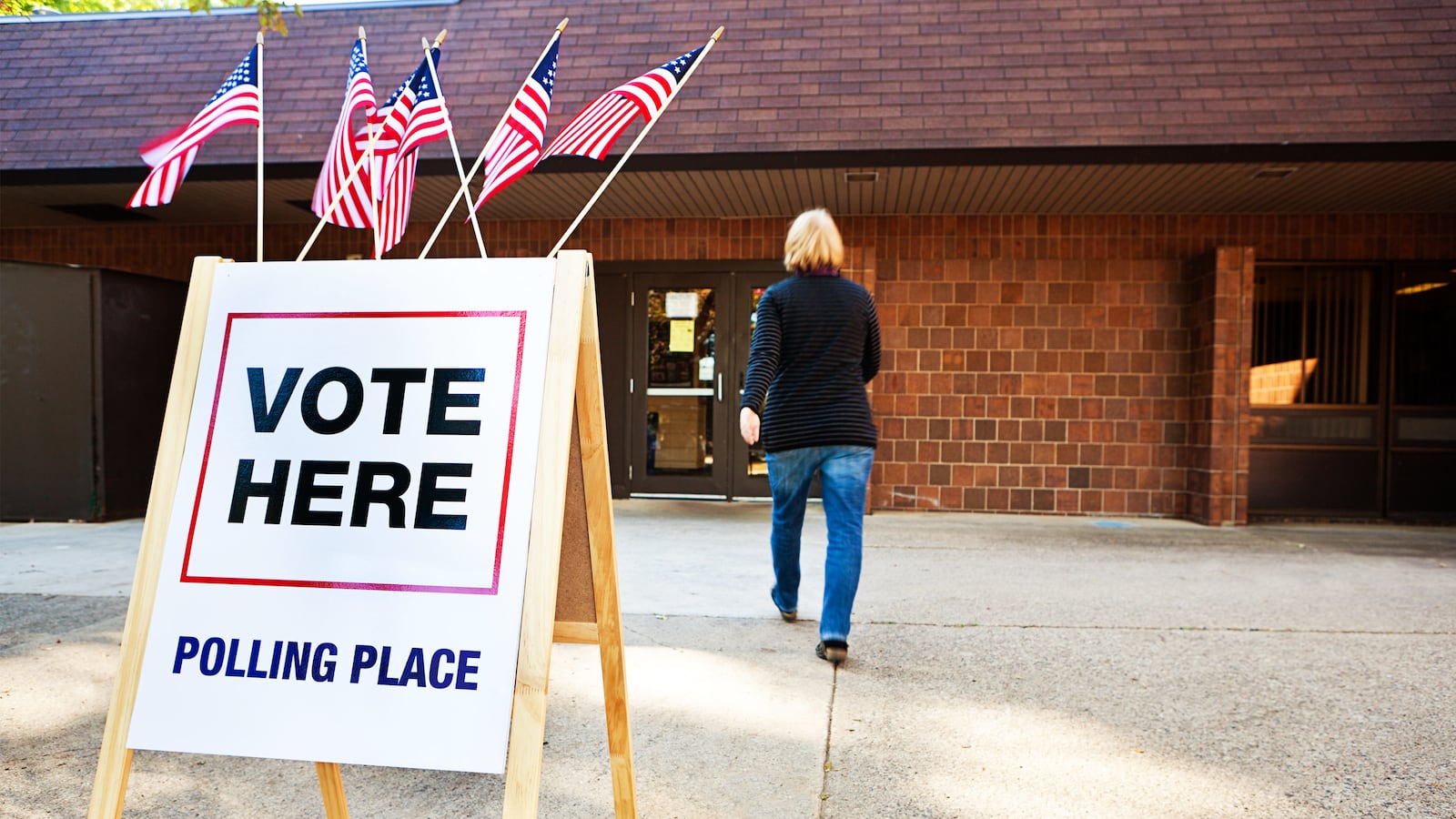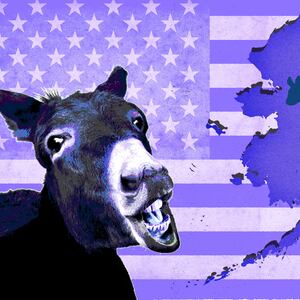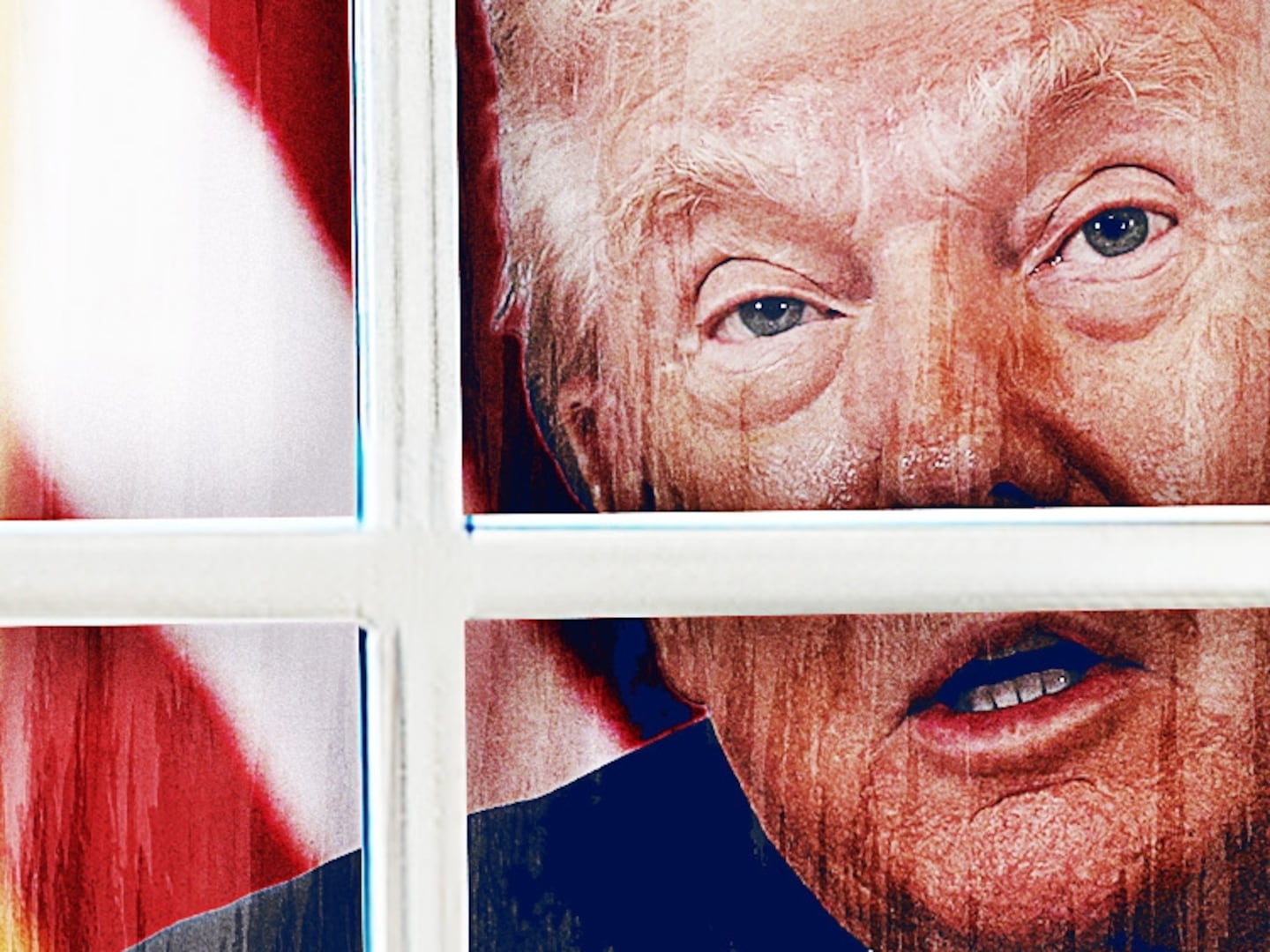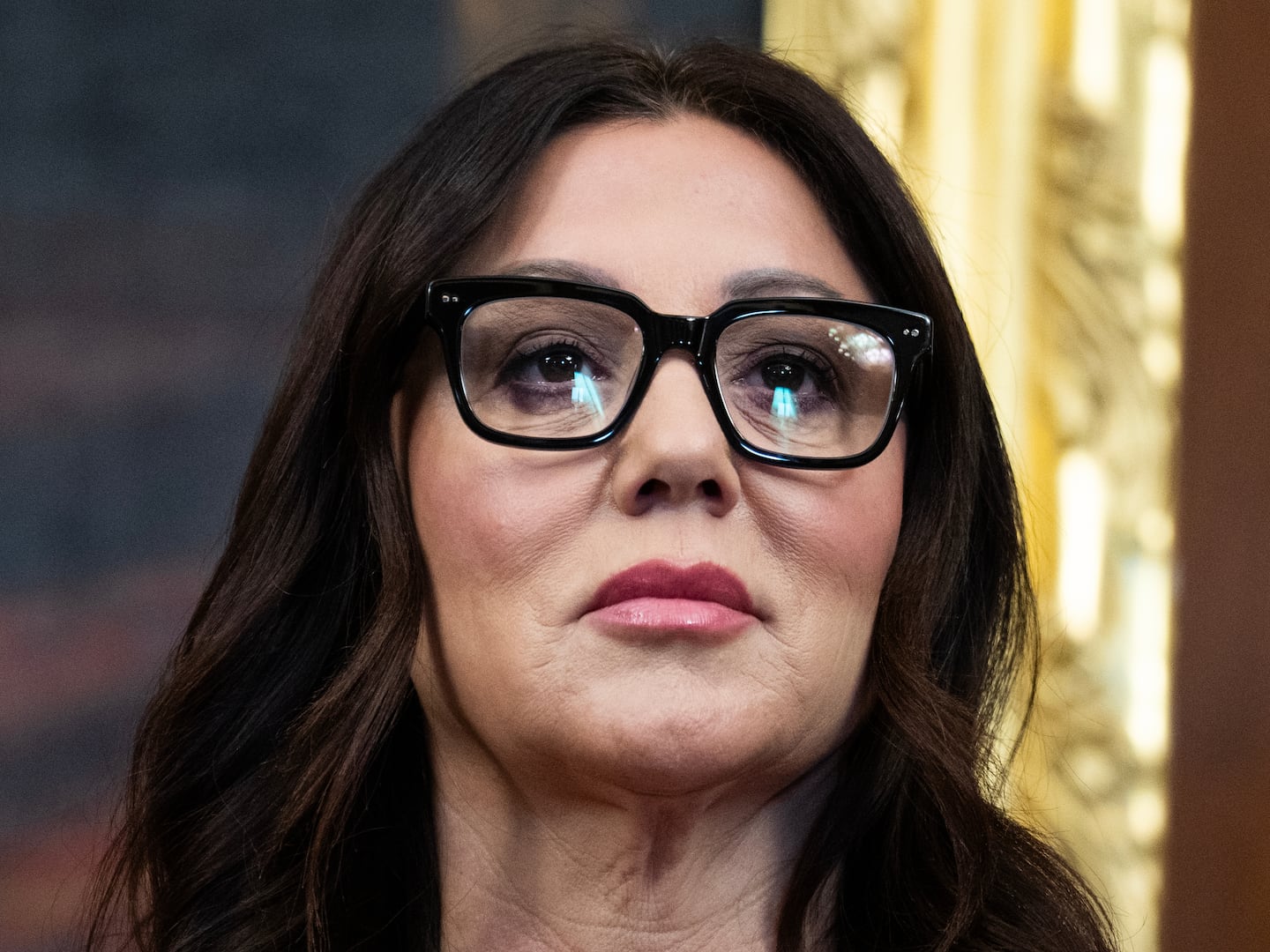It was getting late on July 6 when 19-year old Christos Ioannou’s Twitter DMs started blowing up about his friends’ latest social media obsession: commissioning a poll of Alaska’s congressional races.
The Ohio college student is part of an informal online community whose members, many of them in their teens and twenties, nerd out together about the numbers of politics—the minutiae of the latest battleground state poll, for example, or a new visualization of voting shifts in a U.S. House district. And on that night, this corner of the internet, which is simply called Elections Twitter by its inhabitants, was lit up with chatter about the need for a survey of Alaska, the GOP stronghold whose presidential and congressional races are getting more attention than usual this year.
Users began tweeting at Public Policy Polling, the Democratic polling shop known for the occasional offbeat survey, asking if they’d do an Alaska poll. At around 10:30, PPP tweeted they’d love to—if someone would hire them to do it. Immediately, Elections Twitter denizens began venturing a suggestion: why not use GoFundMe, the crowdfunding platform, to commission the poll?
One such user, Jack Vaughan, a 20-year old from Tennessee, says Ioannou messaged him to ask if he was being serious about the crowdfunding idea. “I really wasn’t,” said Vaughan, “but after he shared some interest in it, we both decided to pursue it.” Ioannou then started a group chat with Vaughan and another crowdfunding-curious user, 21-year old Steph Hernandez, and within the hour, the three had put up a page: “Let's Poll Alaska: an Election Twitter Project.”
Their stated goal was $5,000, the number that PPP gave them as a benchmark for the survey. Vaughan went to bed thinking it’d be a miracle if the project pulled in more than $1,000. “I woke up,” he said, “and there was over $7,000 in that account.”
Ultimately, the campaign raised $8,282 before it was capped—enough money to not just poll Alaska, but another state, too. PPP responded by saying they’d do the poll at no cost, if the GoFundMe organizers would donate the funds they’d raised to charity. Vaughan, Hernandez, and Ioannou agreed.
On Thursday, PPP released the Alaska poll results, which were widely shared by poll aficionados on social media after showing two of the state’s GOP incumbents, Sen. Dan Sullivan and Rep. Don Young, vulnerable to Democratic-backed challengers.
They then used the rest of the money for a PPP survey of Montana, another dark-horse state for Democrats this fall. The results were released on Monday, and showed tight races for the seats held by the incumbent GOP senator, Steve Daines, and the state’s one U.S. House seat. Both are increasingly Democratic targets.
The fruits of the crowdfunded polls were widely shared on social media by pundits and political reporters—to the glee of the effort’s organizers. Ioannou’s tweet about the Montana results, for example, was shared by a prominent cable news host. “I GOT THE CHRIS HAYES RETWEET,” he gushed.
Now, the hope is that—if they can keep raising the money—the group will expand its efforts to other contests, and try to shade in places on the electoral map that are being missed by the big-time pollsters.
“At first, I was skeptical—this is a great little thing, but probably a fluke,” said Ioannou, a political science student at Capital University in Columbus, Ohio. “Now I’m thinking, I don’t know if it’s a fluke. People are starting to realize… if they want to know the state of a race, they don’t have to look up polls. They can donate to fund more.”
That idea represents a small, but somewhat radical, departure from how political polling is done. It’s always been a famously expensive enterprise, with candidates and party organizations routinely shelling out top dollar for surveys. It can cost tens of thousands of dollars just to get a single good glimpse of the electorate in a statewide race; competitive campaigns can spend far more than that on polling over the course of a race. Other surveys are usually commissioned by deep-pocketed interest groups or regularly conducted by well-resourced institutions like news organizations or universities.
All to say, then, that polls typically aren’t commissioned by a group of college students knocking ideas around on Twitter late at night and deciding to pass the hat to strangers eager to shell out some of their hard-earned money to see some numbers in the Montana Senate race.
“It’s amazing,” said Tom Jensen, the director of PPP, of the Gen Z politicos. “Polling is expensive, and most polling companies aren’t going to exist by doing polls for free that people are interested in. I think this new idea that they have, raising money to pay a pollster collectively, is a really good way of taking charge of that issue.”
Generally, Elections Twitter skews to the left, and the GoFundMe organizers are clear about their liberal lean. Vaughan, a sophomore at the University of Tennessee, is working this summer for the Knox County Democratic Party—a job he says he may stick with if his fall classes go all-online due to the pandemic. He said that part of the interest in commissioning these polls is the hope that they could get a result that points Democrats to a race worth their interest, time, and fundraising dollars.
Montana is a good example. A somewhat marginal battleground state at the beginning of the 2020 election cycle, Democrats are seeing an increasingly competitive environment in its congressional contests, with Gov. Steve Bullock taking on Daines, and GOP Rep. Greg Gianforte leaving his House seat to run for governor. The survey released Monday showed Bullock up by two points on Daines, a dead-even race for the two candidates running for the House seat, and Gianforte up four points on Democrat Mike Cooney in the race for governor. The results were promising enough to warrant a press release on Monday afternoon from the Democratic Congressional Campaign Committee, the party’s official arm for House races.
Fresh off that, the group is planning to expand the crowdfunding effort to another set of states, and they’re likely to work with other pollsters beyond PPP. Jensen is all in favor: “No one needs another Michigan poll,” he said. “I think there will be a lot of things over the course of the cycle, that people who follow polls say, we don’t need another Florida poll, we need a second-tier state. They realize they have the opportunity to fill that kind of gap, to do something that really informs people.”
The organizers don’t know how deep their fellow political nerds’ pockets are, but they say that the initial success proves that a different way of polling is possible. “So, uh, this was definitely, definitely not something I expected to actually take off at first,” said Hernandez, a 21-year old from the Houston area. “I think, long-term, what really drives that energy in the crowdfunding is the polling drought many states get. We’re all used to polls out of Florida… but every now and then, there’s a dark horse, and we helped shed some light on it.”
“Hey,” said Hernandez, “if you get a group of people large enough and interested enough, you can fill in those gaps and cut off the polling drought.”







